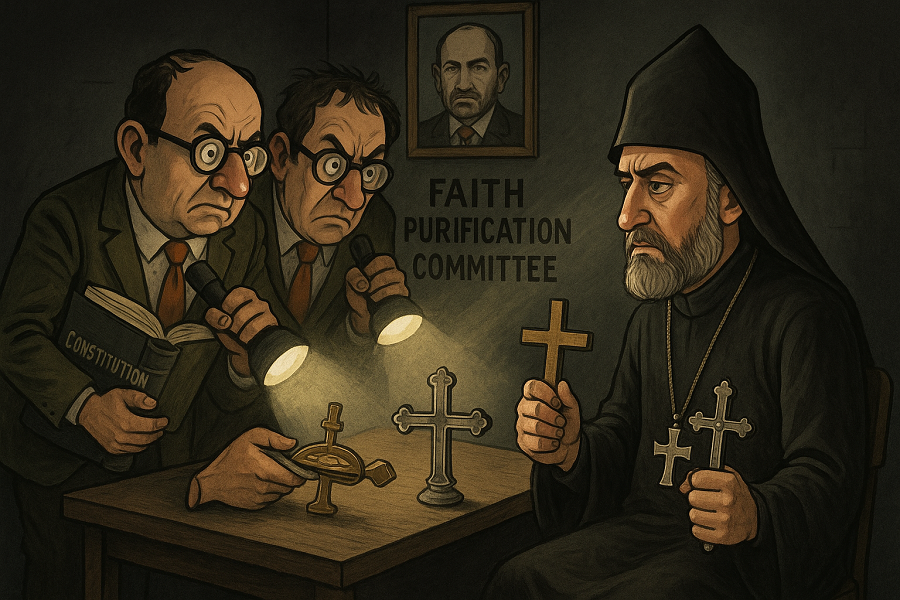Any intellectual must, by nature, be at odds with authority. And not simply because no authority is ever ideal. The deeper contradiction, in my view, lies in the fact that the desire to command, to coerce, and to dominate should feel foreign to the soul of an intellectual, even unnatural.
In that sense, skepticism toward both secular and spiritual authority is entirely natural. Not only Raffi, but also Khachatur Abovyan, Komitas Vardapet, and many other esteemed figures were not appreciated as they deserved to be by segments of the Armenian clergy. In fact, Khosrov of Andzev, Anania Narekatsi, and even Saint Grigor Narekatsi were, at times, suspected of harboring sympathies for heretical sects.
But none of these great minds were wielders of power. They had no armies, no factions, no swords with which to march against the Mother See—even if such a thought had ever crossed their minds. They could not arrest bishops they disagreed with. Their influence came—and continues to come—not from domination, but from their words, their pens, and their talent.
Now consider what the Catholic Church has done over its long history—how many people it condemned to death in the fires of the Inquisition. Yet you don’t see the Italian Prime Minister or his advisors launching repressive campaigns against today’s bishops or laying siege to the Vatican.
Read also
In Armenia’s case, however, the inquisitors are the current rulers. As we now see, their campaign is not merely against the Catholicos personally, but against the Armenian Apostolic Church as an institution. Their goal seems to be the establishment of a new state religion: Nicolaitanism—with its very peculiar notions of “sovereignty” and the “real Armenia.”
…It brings to mind Ostap Bender wandering through the desert, muttering about declaring war on Denmark because the Danes tortured Prince Hamlet to death.
Aram ABRAHAMYAN
The image was generated using artificial intelligence






















































